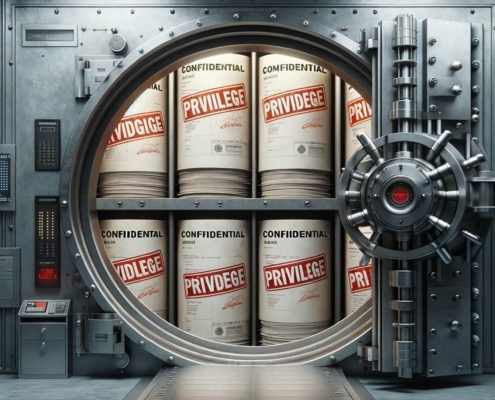
What is privileged information in discovery?
Learn when to assert privilege in discovery and when to compel discovery when a party asserts privilege.
A class action lawsuits are often filed against big companies whose negligence has harmed a large group of people. A class action lawsuit includes many topics; the most common being employment law class action lawsuit or defective product class action lawsuits. Although there are many California class action lawyers, it is important to select a class action attorney that is familiar with the local courts. In a class action, the court must approve the class action lawyer as the class representative. I’m a class action lawyer Los Angeles courts are familiar with. I’ve also acted as a California class action lawyer in San Diego courts, and Orange County courts.
Free Consultation
A class action lawsuit is when a group of injured parties band together to file a lawsuit as a group (called a class) instead of filing individual lawsuits. There is no requirement for how many people must join the lawsuit, it can be as big as needed; the only requirement is that everyone has at least one common injury. The class is represented by a class action lawyer.
For example, a company misclassifies its employees as independent contractors, meaning they missed out on benefits. Some may have also been wrongfully terminated, and some may have missed out on sick pay or maternity leave, but the issue they all have in common is the misclassification. Therefore, the class action lawsuit is filed for misclassification. Once that lawsuit has been concluded, the members of the class who had additional grievances would file lawsuits for those too. Learn more: What is a class action lawsuit
A class action lawsuit is an extremely efficient way to handle a complaint that affects other people. It will capture attention much more than a small lawsuit will, and the company and their lawyers will take it much more seriously. Also, unless you’re the lead plaintiff, you can take a very passive role in the class action lawsuit and just wait for the updates. Most class action lawsuits are handled on a contingency basis, so the California class action lawyer compensated a fee that is approved by the court. If they do not win, you do not have to pay the class action attorney. Therefore, a class action lawsuit is a much more efficient way to handle minor claims. The State of California published a study of California Class Action Litigation.
The California Department of Health Care Services’ (DHCS) Class Action Recovery Program seeks reimbursement for services that Medi-Cal paid for on behalf of its members who are involved in third party actions, such as product liability, vaccine/ medication-related injuries, and exposure to asbestos/ other environmental toxins.
A group of people notice that they are dealing with the same issue. In the example we gave, one employee may realize that they are being misclassified, as are some of their colleagues. They join a group and speak to an attorney who agrees they have a case and would be able to file a class action lawsuit. The members of the class will then pick a lead plaintiff who will act as the representative between the attorney and the rest of the class. If a class action lawsuit ends up being 50 people, for example, it is impractical to try and organize a meeting for all those people. Therefore, the lead plaintiff meets with the attorney and relays information to the members of the class.
A California class action lawyer will then file the lawsuit with the court and petition to be recognized as a class. Once they receive approval to form a class, the attorney can then bring additional people into the class action lawsuit. For example, the original class may be people in one department in a big corporation, but they know that other departments may face misclassification too. Once they have been recognized as a class, they can ask people from other departments to join the class action lawsuit.